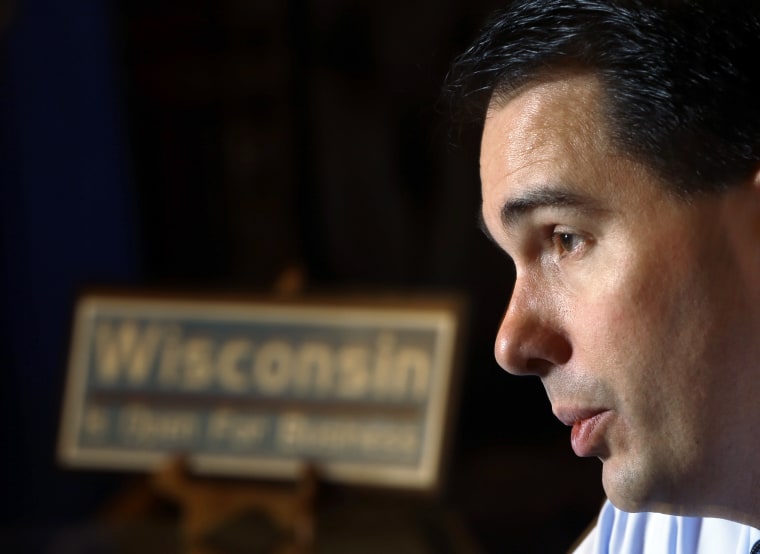Republican governors have gone surprisingly soft on one aspect of Obamacare lately. Since the start of the year, Jan Brewer of Arizona, Rick Snyder of Michigan, Jack Dalrymple of North Dakota and John Kasich of Ohio have all ditched GOP orthodoxy in order to expand health care for their poorest residents—not a hard call when the federal government is set to cover the cost. Now comes Scott Walker of Wisconsin to buck the mini-trend. Walker announced Wednesday that Wisconsin will not expand its Medicaid program through the Affordable Care Act. But while swearing off $4.4 billion in federal support, Walker claimed he’d found a way to provide a similar level of coverage at far less cost to the state. If only it were that simple.
Walker’s plan does open the state’s Medicaid program to thousands of childless adults who have languished for years on waiting lists. But to open those slots, it will force thousands of current Medicaid patients—most of them people with children in their care—into the private insurance market. Under Obamacare, the state will soon have a federally run insurance exchange, where people living below 400% of the federal poverty level can buy policies that are discounted through tax breaks. Walker’s plan assumes that the federal subsidies will make private coverage affordable for everyone who needs it. Unfortunately, they won’t.
At a glance, the Walker solution looks like a win for everyone. Most Medicaid programs cover only parents and children, but Wisconsin’s “BadgerCare” system is technically open to anyone living below 200% of the federal poverty level, regardless of family status. The catch is that BadgerCare has only a limited number of slots for childless adults, and those slots filled up years ago. Rather than expand BadgerCare to serve the 150,000 people now on waiting lists, Walker will simply tighten the eligibility rules. Under his plan, only those living below the actual poverty level ($11,490 a year for an individual, $19,530 for a family of three) will qualify for Medicaid. Those living between 100% and 200% of that threshold—a population that includes 90,000 people with children—will have to shop for care in the insurance exchange.
The trouble is, the new state insurance exchanges are designed for employers and middle-class consumers, not for the poor. Most private policies include deductibles and co-payments—and thanks to a glitch in the federal health care law, many people who can’t afford the premiums won’t qualify for assistance. When Congress passed the health care reform law, it intended to subsidize private coverage (through tax breaks) for those who would have to spend more than 9.5% of their income to get coverage. But as written, the law defines coverage as individual coverage—even if the buyer has a family to protect. Suppose a family lives on $20,000 and the breadwinner can get individual coverage for $1,900 a year. Family coverage may cost twice that, but it won’t be discounted.
Walker’s plan isn’t a complete abdication: His office claims it will help 224,580 Wisconsinites find health coverage while cutting the state’s uninsured population by 47%.
“We’re all for expanding childless adults’ health care access,” says Jon Peacock, research director for the Wisconsin Council on Children and Families. “But this plan does it by pushing low-income parents into a program that doesn’t meet their needs.”
It’s worth noting that the exchange at the center of Walker’s initiative is the same one he has refused to build in partnership with the federal government. To avoid expanding Medicaid, he is handing off Medicaid patients to another federal program. His tagline for the initiative: “From Dependence to Independence.”
